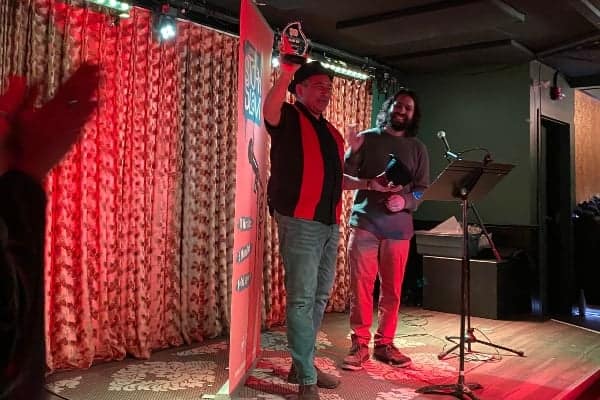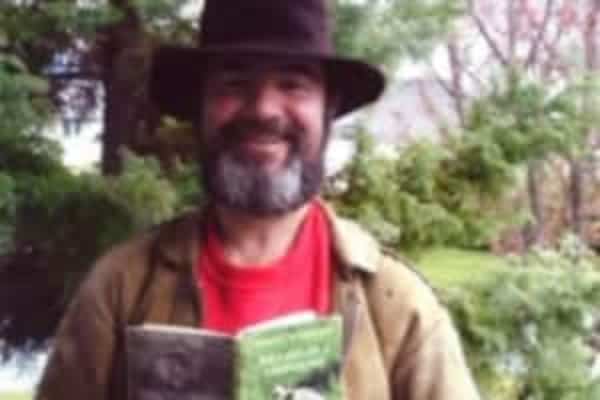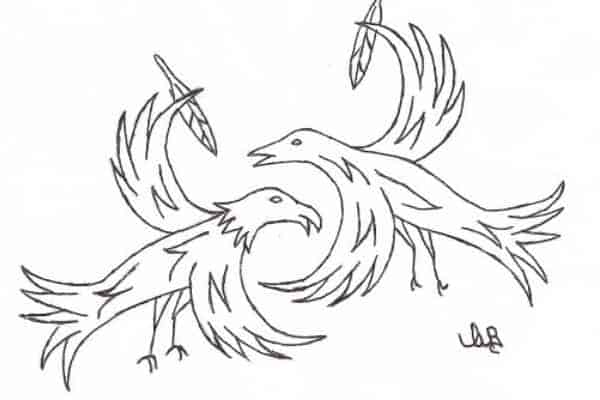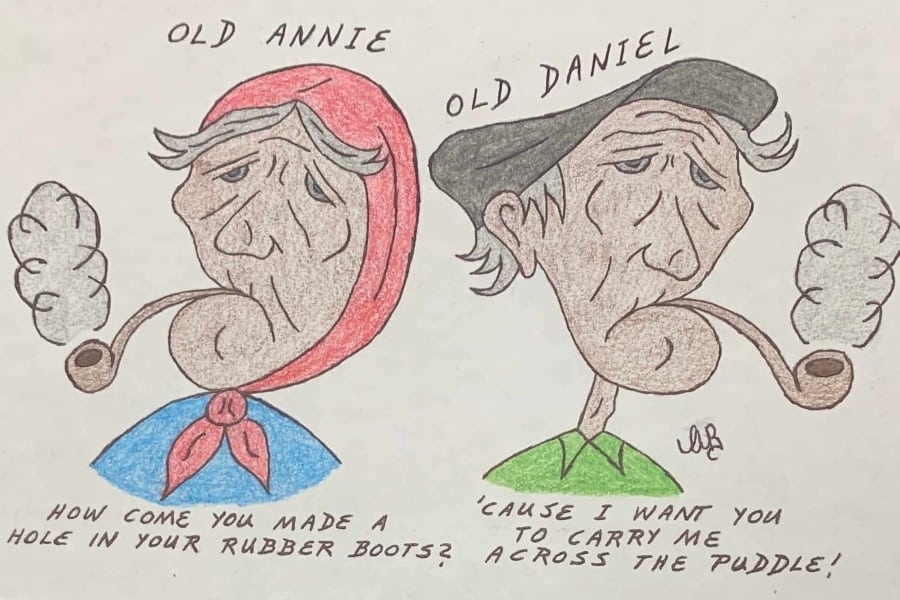Brian Brett was 17 when the “click” happened.
His life was in chaos at the time, especially in the classroom. During that period, he recalls, he was booted out of eight of his nine courses for a month or so.
“I was really going down the tube pretty fast and hard, and was getting into a lot of trouble. I would have been in jail within a year, I think.”
Then a savvy English teacher named Cecil Reid tossed a book onto his desk and said, “So you think you’re tough, eh? You should read this.”
That book was a collection of works by the 19th century French decadent poet, Jean-Arthur Rimbaud, written mostly in his late teens.
“I had that ‘click’ that feminists talk about, where you just suddenly realize the world is different. And so I just started writing poems immediately from that day.”
Brett explains this in a call from his room at the Banff Centre for the Arts, where he is conducting workshops as part of the Calgary International Spoken Word Festival.
Since that turning-point in 1967, Brett has become one of Canada’s more prolific writers, with several volumes of poetry, fiction and memoirs to his credit, not to mention reams of work as a journalist and social commentator.
Among other recent honours, last month he won the prestigious CBC Literary Award for poetry.
“I’ve spent 40 years in the wilderness, more or less, and then all of a sudden I’ve been showered with prizes and awards,” he says, punctuating the conversation with one of many laughs. “It’s getting embarrassing. My outlaw status is shot.”
Outlaw status?
A quick read of his slender 2004 memoir, Uproar is Your Only Music, reveals a life that has been anything but mainstream – a life often lived on the edge, marked in his early years by high-risk jobs, high-risk travels and high-risk substance abuse.
It also reveals a life lived with a huge appetite for good food, hard work, literature and the natural world.
It recounts with remarkable candour the physical and mental pain of growing up with a rare genetic condition called Kallmann’s Syndrome which meant his pituary gland simply didn’t produce the testosterone needed for him to experience normal puberty.
As a result, even well into his 20s, Brett had the appearance of a teenaged girl.
Now, thanks to the regular testosterone shots he must continue to take, Brett looks every inch the ruddy, fleshy Salt Spring Island farmer he actually is.
And despite once being bluntly told by his doctor that he would not live beyond the age of 40, when Brett celebrates his birthday next Thursday, during the Yukon Writers Festival, he will have outlived that prognosis by 21 years.
Uproar’s Your Only Music did not begin as a memoir. It started as a collection of poems, which Brett soon realized would require a prose section to provide context.
“It was a tough book to write,” he admits. “I thought that I was over a lot of that stuff, and when I started writing it, much to my shock, that’s when I learned about the whole closure mythology. There is no closure, there’s mostly just forgetting.”
And while the book deals candidly with sexual abuses he endured, the physical pain that is a constant companion, episodes of depression and occasional bouts of “roid rage” from the testosterone treatments, Brett is adamant that it not be seen as a “victim” book.
“In many ways, Uproar is actually a kind of celebration,” he says.
In spite of being “kicked around a bit” by life, Brett is grateful for the ability he gained through his experiences to “look outside the envelopes that we tend to put around things.”
In 2009, Brett published a second book of memoirs, Trauma Farm: a rebel History of Rural Life. It describes an 18-year-long day on the active farm he and his partner, Sharon, own on Salt Spring.
Besides revealing Brett’s encyclopedic knowledge of flora and fauna, it also provides a loving treatise on rural life, occasional discursions on philosophy and world literature, and a clear-eyed critique of humankind’s mistreatment of the environment.
“I think that we actually are going to blow it. In terms of ourselves, but not in terms of the environment in the end, because that environment will rebuild once we blow ourselves out,” he predicts.
“But the great thing about the human condition is, God, we’re innovative creatures, right? And there is always the possibility that we will bail ourselves out of this, and one has to hope for it.”
Never without a host of projects on the go, Brett has already begun work on a third volume of memoirs, to be called Tuco and the Scattershot World.
“The scattershot is me getting shot in the ass with a salt and pepper gun in the good old days. Some farmer nailed me good,” he laughs.
The Tuco part derives from his plan for the book to be primarily the memoir of his parrot, a 20-year companion he bought from the proceeds of a successful libel suit following the two terms he served as a municipal councillor in White Rock, BC.
Has it been mentioned that this is a life lived large?
But even before the third volume in what he calls a “very nonlinear series of memoirs” comes out, Brett plans to produce a coffee-table style book of poems and photographs about the Yukon’s Wind River.
That project is an outgrowth of his experience with Yukon photographer Fritz Mueller, among others, on the Three Rivers Expedition organized several years ago by the Canadian Parks and Wilderness Society.
Despite his eclectic literary output, Brett considers himself a poet first and foremost. And he loves to share that passion with students, both young and old, in the hope of evoking the “click” he first heard at age 17.
He may even share a look at the well-worn copy of Jean-Arthur Rimbaud’s poems his teacher gave him back then – he still carries it with him as a talisman wherever he travels.
Brian Brett will read some his newest poems in a free reading at the Old Fire Hall at 7:00 pm, Wednesday, April 27.




